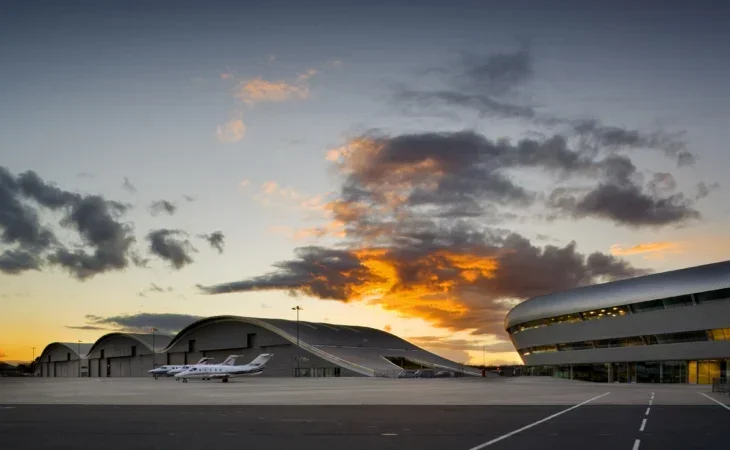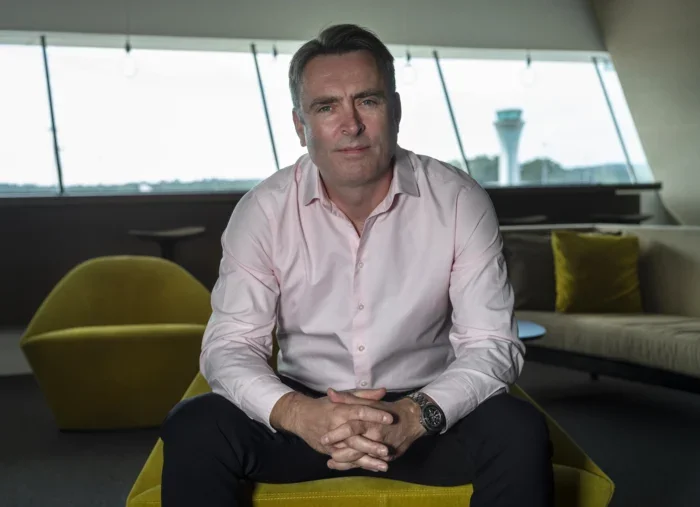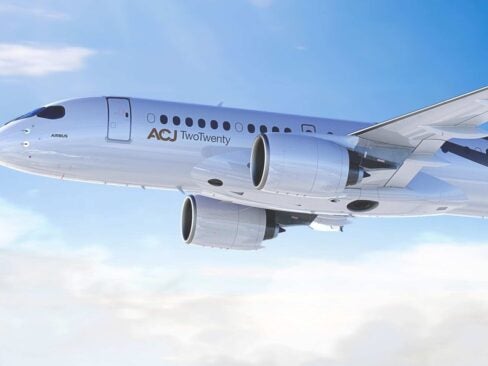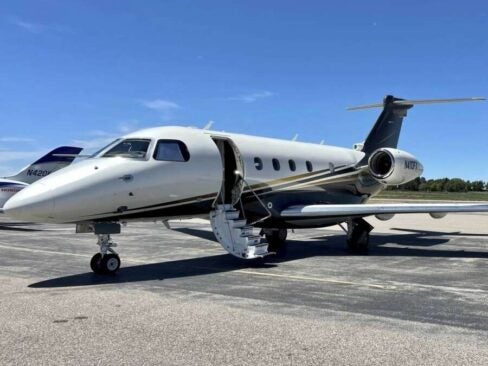Farnborough airport prides itself as the first business aviation airport to achieve carbon neutrality. The airport has access to easy road links to London, providing a gateway for commuters into the Capital and thereby making it popular for personal and business commuting. As Farnborough opts for further expansion in the London market, it does so with great consciousness for sustainability, hence the launch of a new Net Zero roadmap.
Speaking with Farnborough’s CEO, Simon Geere, we learned the measures that the Net Zero roadmap outlines and how it hopes to achieve them by 2023. As well as price matching Sustainable Aviation Fuel (SAF) with that of Jet Fuel in order to spotlight its commercial importance, Farnborough also seeks to cut on-site emissions caused by gas usage.
Geere himself was inspired to join Farnborough in 2020 due to the positive example that it set within the industry. He told Elite Traveler: “At Farnborough Airport, there are so many opportunities for us to raise awareness around its role in the London market, and also around its sustainability credentials, that it was a compelling opportunity. So I was very pleased to join the company.”
[See also: Air Partner Unveils Ambitious Sustainability Strategy]
Geere admitted that the primary source of Farnborough’s carbon emissions arises from gas used for heating. Farnborough spans 225,000 square feet and has multiple large-scale buildings and facilities in addition to an on-site fire station, all of which are warmed by gas heating systems.
The company aims to replace these systems with an alternative, renewable heating source in order to reduce emissions. Some of the alternative methods considered by the company include geothermal, hydrogen and ground-pump technology.
Farnborough also hopes to reduce emissions from aircraft and passenger surface access from the airport. The key way in which it hopes to tackle the former is through the promotion of SAF.
[See also: Victor Unveils Sustainable Aviation Fuel Offering]
Whilst currently in low supply and highly priced, Farnborough is temporarily price-matching SAF with commercially used jet fuel in order to incentivize purchase. Geere described this as a “chicken and egg situation” whereby if demand increases due to incentives then the free market will be forced to meet this through increased supply.
He said: “By reducing the price of SAF at Farnborough airport for this trial period on the run up to the airshow, we’re shining a spotlight on the issue. Ultimately, this is going to require the government to introduce policies that support the use or the production of SAF and also potentially show financial support, which would help get some traction behind the whole supply/demand equation.
“SAF is a major component to decarbonizing the industry but we need to have that injection of traction across all parties to get a broader take-up in increased demand or increased supply and investment which will then bring the price down through this gate increase demand. That’s the circular effect. We need to keep that going.”
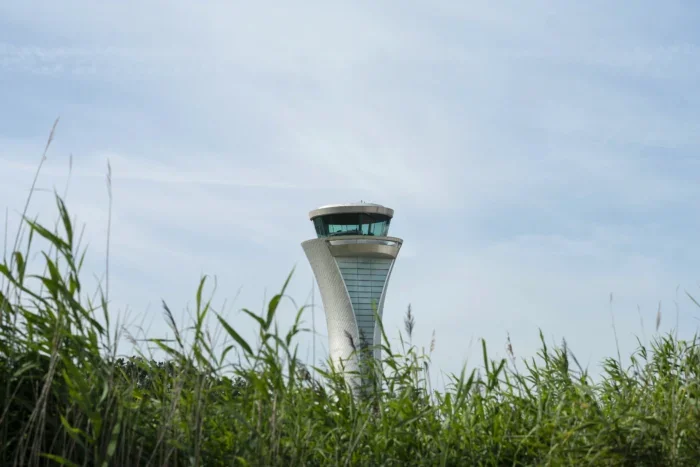
Although Farnborough is doing well in its sustainability effort, a whole-industry effort is needed to create real change. As a result, Farnborough is part of Sustainable Aviation, a trade body of aviation stakeholders who look at “all opportunities and innovation to decarbonize the industry over time.”
Farnborough believes that it is paving the way for industry change by setting standards for environmental performance in the aviation sector. It hopes that its sustainability efforts will ripple through the industry by communicating with both flyers and corporations and continually positions itself as a “sustainable choice for business aviation access into London and southeast.”
[See also: Sustainable Skies: Jet Companies Making Positive Change]
Many argue that private and business aviation is inherently unsustainable as it incentivizes using more planes for personal use rather than collectively using commercial flights. While Geere says business aviation will always have its own place in the market, he accepted some change was needed.
He said: “I don’t quite see the interchangeability between business aviation and commercial flying, as more often than not they serve very different demand profiles. Demand for business aviation is a function of connectivity, assurance and time benefits. I recognize [private aviation companies] have work to do in this area.”
Yet as part of Farnborough’s roadmap to net zero by 2030, it is setting some of the most ambitious targets in the industry whereby collective effort across both private and commercial aviation is encouraged. When asked to name one recommendation that he would give to other airports and airlines in order to yield the most sustainable effect, Geere prioritized SAF.
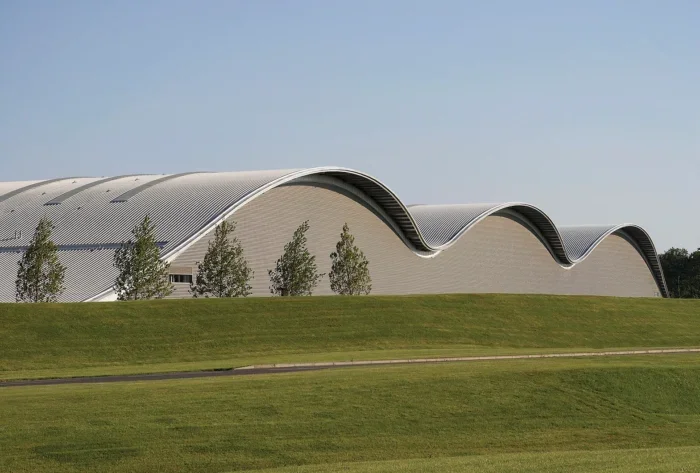
“I think it is the wholesale availability and affordability of SAF across the sector,” he said. “That would be the one greatest collective thing that could happen to provide near-term material benefits to the industry.”
While he expressed certainty that the mass use of SAF is inevitable, it remains a question of just how quickly that will happen. By temporarily price-matching SAF with jet fuel, Geere expressed hope that it will lead to further discussion around moving the agenda forward.
[See also: Chris Leach on a Greener Future for Aviation]
As well as implementing these measures to ensure that Farnborough provides greener transportation, it is also constructing a new hangar facility. In August, the $60m project will begin with an expected completion date of Q1 2024.
Geere expressed excitement about improving and investing in the airport facilities and raising Farnborough’s profile within the London market. Whilst already a premium connectivity airport, its ultimate aim is to be viewed as accessible to all passengers in the London market.
He said: “We will be spending a lot more time communicating the benefits of an airport lifestyle, including its sustainability credentials, to the end consumer. And so spending a lot of time looking at opportunities so that people understand what Farnborough Airport is all about, and hopefully, will consume us as an aspirational product in the future.”
[See also: Tradewind Aviation Goes Green with Carbon Offset Program]





